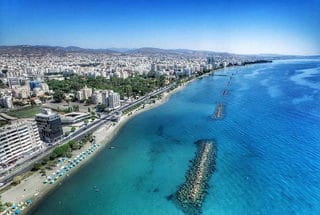ΑΝΑΠΤΥΞΗ ΚΑΙ ΔΙΑΧΕΙΡΙΣΗ ΠΑΡΑΚΤΙΩΝ ΠΕΡΙΟΧΩΝ
Της Στέλλας Ευαγγελίδου, Αρχιτέκτονα
Το παρακάτω άρθρο πρωτοδημοσιεύτηκε στην στήλη ‘Αρχιτεκτονική και όλα τα περιρρέοντα’, της εφημερίδας ‘ο Φιλελεύθερος’, το 2014. Αναδημοσιεύεται εδώ, με την ευκαιρία της πρόσφατης ψήφισης της τροποποίησης του περί Ακίνητης Ιδιοκτησίας (Τροποποιητικός) (Αρ. 6) Νόμου του 2014 το οποίο δίνει δικαίωμα στο Υπουργικό Συμβούλιο να προβαίνει στην αποξένωση ακίνητης ιδιοκτησίας της Δημοκρατίας και αφορά επίσης στις κατασκευές σε θαλάσσιο χώρο και παραλιακές περιοχές.
Πριν 40 χρόνια, ο Γάλλος φιλόσοφος και κοινωνιολόγος Ανρί Λεφέβρ έγραφε στο βιβλίο του ‘Η παραγωγή του Χώρου’:«Η ακτογραμμή της Μεσογείου μετατράπηκε σε ένα χώρο ψυχαγωγίας για την βιομηχανική Ευρώπη. Ο τουρισμός δημιούργησε την ανάγκη για άμεση πρόσβαση στον ήλιο και στη θάλασσα και έδωσε μια νέα ποιότητα στο χώρο: αυτή των ξενοδοχείων και των τουριστικών επαύλεων. Ενας τεράστιος χώρος, προηγουμένως αγροτικός, δαπανήθηκε για να μετατραπεί από χώρος παραγωγής σε χώρο κατανάλωσης του ήλιου, της θάλασσας, του αυθόρμητου ερωτισμού, των σπορτ, της συνταξιοδότησης, του φεστιβάλ των διακοπών. Η σπατάλη και η δαπάνη έγιναν Το Νόημα του…Οικονομικά, κοινωνικά, αρχιτεκτονικά και πολεοδομικά υποβλήθηκε σε ένα είδος νέο-αποικισμού. Η έμφαση δόθηκε στην ψυχαγωγία αντί στην παραγωγή όπως γινόταν στις βορειο-ευρωπαϊκές χώρες. Φαινομενικά τυχαία, στην πραγματικότητα αυτός ο μη-παραγωγικός χώρος έχει σχεδιαστεί επιμελώς για να εξυπηρετεί τα συμφέροντα των τουριστικών πρακτορείων, τραπεζιτών και επιχειρηματιών από τόπους όπως το Λονδίνο και το Αμβούργο…».
Άκρως πολιτικό το παραπάνω κείμενο, δεν θα τύχει περισσότερης ανάλυσης στο παρόν άρθρο. Παρατίθεται σαν μια αξιόλογη άποψη για το πώς ίσως ξεκίνησε ο φτωχός κι αμόρφωτος νότος να καταστρέφει τις παράκτιες περιοχές του ιδιαίτερα μετά το 1960, αλλά και για να υποδείξει την πολυπλοκότητα του θέματος του τουρισμού. Οι απόψεις του Λεφέβρ είναι σήμερα ιδιαίτερα επίκαιρες και επανεξετάζονται σε πολλά πανεπιστήμια του δυτικού κόσμου στην αναζήτηση απαντήσεων και πιο ανθρωπίνων συστημάτων στην εποχή της κρίσης των κοινωνικών αξιών και του πολιτικο-οικονομικού συστήματος.
Στην Ευρώπη των κρίσεων και της Τρόϊκα όμως, υπάρχει και μια άλλη πτυχή, που βλέποντας στην συγκεκριμένη περίπτωση τις καταστροφές των Μεσογειακών παρακτίων ενδιαφέρεται για την προστασία τους. Ετσι, ο ‘φτωχός Νότος’, που έχει εμπειρίες και δεν είναι πια αμόρφωτος, δεν είναι πλέον και άμοιρος των ευθυνών του. Γι’ αυτόν ακριβώς το λόγο δημιουργήθηκε η Σύμβαση της Βαρκελώνης, η οποία αποτελεί από το 2008 την Ευρωπαϊκή οδηγία για την ολοκληρωμένη διαχείριση των παρακτίων ζωνών. Στη σύμβαση αναγνωρίζεται ο κίνδυνος αστικοποίησης. Η πληθυσμιακή αύξηση, ο διπλασιασμός του τουρισμού και η αύξηση των μεταφορών επιβαρύνουν το περιβάλλον, υποβαθμίζουν τους υδάτινους πόρους, την βιοποικιλότητα των οικοσυστημάτων, συντελούν στην απώλεια τεράστιων φυσικών εκτάσεων και επομένως και στην αλλαγή του κλίματος και των φυσικών φαινομένων. Αναγνωρίζεται επίσης η καταστροφή της πολιτιστικής κληρονομιάς των λαών της Μεσογείου και η ανάγκη προστασίας της προς όφελος των σημερινών και μελλοντικών γενεών.
Όλα τα μεσογειακά κράτη μέλη της Ε.Ε. υπέγραψαν τη Σύμβαση της Βαρκελώνης, με εξαίρεση…την Κύπρο!
Εντούτοις, επειδή αποτελεί ευρωπαϊκό δίκαιο, η εφαρμογή της είναι δεσμευτική και για μας. Επομένως, η Κύπρος οφείλει: Να στοχεύει σε μια ολοκληρωμένη και αειφόρο ανάπτυξη/διαχείριση των παρακτίων ζωνών, μέσω ‘’ορθολογικού σχεδιασμού, εξασφαλίζοντας ότι η οικονομική, κοινωνική και πολιτιστική ανάπτυξη συνάδει με το περιβάλλον’’. Να αποτρέπει τις ανθρωπογενείς δραστηριότητες που προκαλούν κίνδυνο για το περιβάλλον. Να ενθαρρύνει τον αειφόρο τουρισμό ‘’συμπεριλαμβανομένου του πολιτιστικού, αγροτικού και οικολογικού τουρισμού σεβόμενη τις παραδόσεις του τοπικού πληθυσμού’’. Να θεωρεί προτεραιότητα τη διατήρηση, συντήρηση και διαχείριση της πολιτιστικής κληρονομιάς (αρχαιολογικής, αρχιτεκτονικής, βιομηχανικής κ.ά). Οφείλει, όπου ‘’ενεργειακές εγκαταστάσεις, λιμένες, θαλάσσιες εργασίες και δομές’’ να ακολουθεί σειρά διαδικασιών με περιβαλλοντικές μελέτες και ελαχιστοποίηση της αλλαγής της γεωμορφολογίας και να αντισταθμίζονται με έργα μη-οικονομικού χαρακτήρα. Για τη λήψη αποφάσεων υποχρεούται να εμπλέκει οργανώσεις και πολίτες.
Η τήρηση τέτοιων κατευθυντήριων γραμμών θα έφερνε την Κύπρο στο επίπεδο μιας ανεπτυγμένης χώρας και θά’ταν λογικό η άρχουσα τάξη να το επιθυμεί για την ευημερία όλων. Αντιθέτως όμως, ούτε οι πολιτικοί μας ούτε οι σύμβουλοι τους φαίνεται να έχουν αντιληφθεί ότι το απαρχαιωμένο μοντέλο ανάπτυξης που χρησιμοποιούν δεν αποδίδει πλέον. Η οικονομική κρίση δείχνει ότι η επένδυση σε πολυόροφα κτίρια/γραφεία δεν αποδίδει, ενώ ο ποιοτικός τουρισμός δεν ενδιαφέρεται πια μόνο για ήλιο και θάλασσα αλλά στρέφεται σε προορισμούς με φυσικό κάλλος και πολιτιστική ταυτότητα (π.χ. Τουρκία, Μαρόκκο κ.ά).
Κι αντί η Κύπρος να γίνει ανταγωνιστική σε πολλά επίπεδα, συνεχίζεται η ασύδοτη εκποίηση του πολιτιστικού και φυσικού μας πλούτου και ιδιαιτερότητας: από την καταστροφή ολόκληρων φυσικών και γεωργικών εκτάσεων για τη δημιουργία πόλεων-φαντάσματα άδεια τον μισό χρόνο (Πρωταράς) στη συνεχή οικοδόμηση βορείως της Πάφου (κόλπο Κοραλλίων μέχρι Αγ. Γεώργιο Πέγειας, Πόλη Χρυσοχούς μέχρι Παχύαμμο), στη δημιουργία τειχών από κτήρια που κλείνουν την πρόσβαση προς τη θάλασσα μέχρι το πρόσφατο απόλυτο κιτς, τη μαρίνα Λεμεσού. Αν η Σύμβαση της Βαρκελώνης εφαρμοζόταν, το βιομηχανικό λιμάνι Λάρνακας δεν θα’ πρεπε να προχωρούσε (χωρίς περιβαλλοντικές μελέτες, δημόσιες διαβουλεύσεις κλπ), όπως ούτε οτιδήποτε άλλο καταστρατηγεί πρόνοιες της οδηγίας.
Η υπογραφή και τήρηση της Σύμβασης και η αλλαγή νοοτροπίας είναι πλέον απαραίτητα. Ομοίως, ένα Σχέδιο Κρατικής Στρατηγικής για τον Πολιτισμό και ένα Σχέδιο Νήσου όπου θα διαφυλάσσονται οι αρχές διαχείρισης των παρακτίων περιοχών ώστε να μην επαφίεται στα εκάστοτε κομματικά και ιδιωτικά συμφέροντα. Επειδή δε, η νοοτροπία δεν αλλάζει εύκολα, εναπόκειται στις περιβαλλοντικές, αρχιτεκτονικές, πολεοδομικές, πολιτιστικές οργανώσεις και ενεργούς πολίτες αν θα επιμείνουν για την επίτευξη των παραπάνω.
english
DEVELOPMENT AND MANAGEMENT OF COASTAL AREAS
Stella Evangelidou, architect
The following article was originally published in 2014, in the column ‘Architecture and all that surrounds it’, of the ‘Fileleptheros’ newspaper. It is published again here, as it relates to the recently voted amendment of the ‘about immovable Property Law’ of 2014, which gives the right to the Council of Ministers to alienate property of the Republic and which also include constructions in sea plots and coastal areas.
The French philosopher and sociologist Henri Lefebvre wrote the following in his book ‘The Production of Space’, 40 years ago: «…The perimeter of the Mediterranean is transformed into a leisure-oriented space for industrialized Europe. Economically and socially, architecturally and urbanistically, it has been subjected to a sort of neo-colonization. At times, this space even seems to transcend the constraints imposed by the neocapitalism which governs it: the use to which it has been put calls for ‘ecological’ virtues such as an immediate access to sun and sea and a close juxtaposition of urban centers and temporary accommodation such as hotels, villas etc. […] it’s a space given over completely to unproductive expense, to a vast wastefulness to an intense and gigantic potlatch of surplus objects, symbols and energies, with the accent on sports, love and reinvigoration rather than on rest and relaxation. The quasi-cultist focus of localities based on leisure would thus form a striking contrast to the productive focus of North European cities. The waste and expense, meanwhile, would appear as the end-point of temporal sequence starting in the workplace, in production-based space, and leading to the consumption of space, sun and sea, and of spontaneous or induced eroticism, in a great ‘vacationland festival’. Waste and expense, then, would be giving it meaning and justification.[…] This seemingly non-productive expense is planned with the greatest care: centralized, organized, hierarchized, symbolized and programmed to the nth degree, it serves the interests of tour-operators, bankers and entrepreneurs of places such as London and Hamburg.»
The above quote which is, of course, incredibly political, will not be elaborated further at this point. It is, however, included as a remarkable view on how, perhaps, the ‘poor’ and ‘illiterate’ South started destroying its coastal areas after the 60’s, as well as to indicate the complexity of the issue of tourism. Lefebvre’s views apply to the current circumstances in many European countries and are re-evaluated in many universities of the western world along with the quest for more humane answers in an era of both financial and sociopolitical crisis.
In the Europe of economic crisis and Troika[1] there is, however, another side that actually recognizes the destruction of the Mediterranean coasts and calls for their protection. Therefore, the ‘poor South’ that has progressed and is not as ‘illiterate’ as in the 60’s, is also no longer completely devoid of its responsibilities. The Barcelona Protocol, introduced in 2008, constitutes the European mandate for the thorough management of coastal areas. The fast pace of urbanization is well recognized, in the Protocol, as a major threat. The population increase, the doubling of tourism and of various carriers encumber the environment, reduce the water resources and the biodiversity of the ecosystem, contribute to the destruction of large stretches of natural land and therefore in the change of the climate and natural phenomena. In addition, the Protocol refers to the destruction of the cultural heritage of the Mediterranean populations and emphasizes the need for protecting it for the sake of current and future generations.
The Barcelona Protocol was signed by all the Mediterranean countries in E.U, except Cyprus! Despite this, the enforcement of the Barcelona Protocol is constraining to all country members, since it’s considered European Law. Therefore, Cyprus is obliged to aim:
- for a rounded off sustainable management of the coastal areas through «rational design so that it obtains an economic, social and cultural development with respect to the environment».
- To deter manmade activities that cause risks for the environment.
- To encourage sustainable tourism, including cultural, rural and eco-tourism respecting thus, the customs of the local population.
- To consider the preservation, maintenance and management of cultural heritage (archaeological, architectural, industrial etc.) as a priority.
- To follow a number of procedures including environmental studies in order to minimize the deterioration of geological formation wherever there are energy facilities, ports, water works and infrastructures. It is suggested that wherever these facilities are unavoidable they should be compensated for with projects of a non-economic character.
- To involve citizens and organizations for all decision making.
The observance of such guiding principles would bring Cyprus up to the level of a developed country and it would be logical that the ruling class would wish it for the wellbeing of all citizens. On the contrary, however, neither our politicians nor their advisors seem to understand the outdated model of development that is used, does not offer any more. The current economic crisis indicates that investing in high rise buildings has no beneficial effect while, at the same time, quality tourism is not interested any more in the ‘sun and sea’ ideal; but is redirected instead, to destinations of natural beauty and cultural character (i.e. Turkey, Morocco etc.).
Instead of seeing Cyprus becoming competitive on many levels, we see the unrestrained sale of our cultural and natural wealth and distinctiveness: from the destruction of vast nature and agricultural land for the creation of ghost-towns, empty half of the year (i.e. Protaras) to the constant construction north of Pafos (from Coral Bay to Peyia, from Polis Chysochous to Pachyammo), from the creation of barriers of high rise buildings that prevent access to the seashore to the kitsch scenery such as the Limassol marina. If the Barcelona Protocol was applied, the Larnaca industrial port wouldn’t be able to proceed (without environmental studies, public hearings etc) nor anything else that violates the principles of the Protocol.
Signing and following the Barcelona Protocol as well as changing our mentality, are now extremely necessary. Similarly necessary, is a Strategic Plan for Culture and Building Development, where all the principles for the management of coastal areas would be maintained without the interference of any political party and/or private interest unit. And since behavioral mentalities do not change so easily, it rests on environmental, architectural, cultural organizations and active citizens to insist for the achievement of all stated above.
[1] the decision group constituted by the European Commission (EC), the European Central Bank (ECB) and the International Monetary Fund (IMF) and that is formed in order to advise for certain reformation measures in the bureaucratic system of the various countries (mostly in the South) and approve for their loans.





